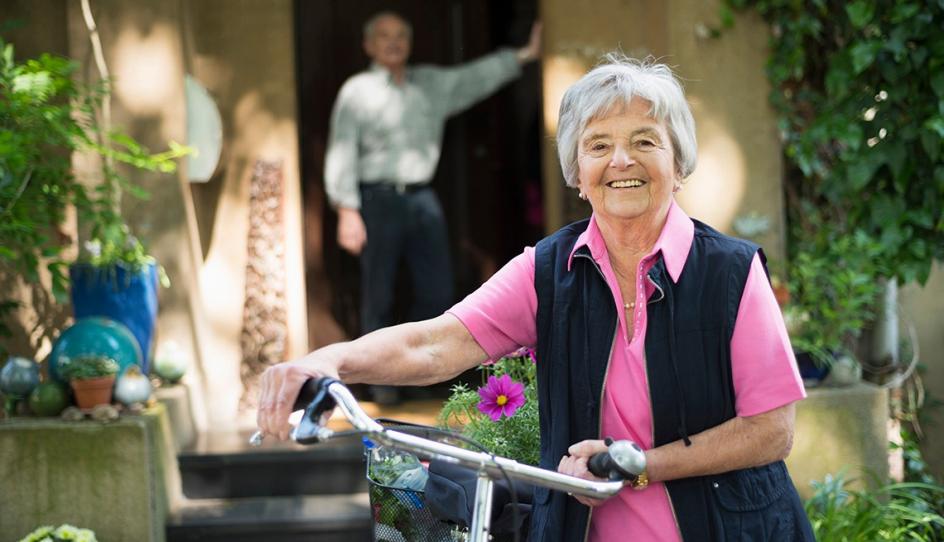Steps everyone can take to remain independent as long as possible
By Barry J. Jacobs AARP

“Will you still need me? Will you still feed me? When I’m 64,” sang 25-year-old Paul McCartney on the Beatles’ “When I’m 64,” a tune on the Sgt. Pepper’s album in the style of a sprightly English music hall number of his father’s generation. It was 1967, when the average American lifespan was a mere 70 and age 64 must have seemed practically ancient to the youthful McCartney. Today, our average lifespan is 79, and many 64-year-olds are running marathons, remarrying and at the peak of their powers in second or third careers.
The song came strongly to mind recently when I celebrated my 64th birthday. Thank goodness, I thought to myself, that I’m still hale and hearty and don’t need anyone to feed me or take care of me in any other way. Nor do I want anyone to ever have to take care of me, no matter how long I live. During my 50s, I was the primary caregiver for my mother and stepfather and felt burdened by their needs. They were proud people who, in turn, resented being dependent upon me. At age 64 or 74 or 84, I don’t want to experience similar feelings by becoming dependent upon and a burden to my adult kids.
As I reflect on where I am at this point, though, I sense unwanted shifts are coming. Sure, my back and knees ache, and I now lack the physical vigor to pull all-nighters like I did when I was a tireless 20-something; those changes come with the territory. But there’s more. During a recent car vacation with our 30-year-old daughter, she did all the driving and I was consigned to the front passenger seat. It felt symbolic in a way, as if she were subtly directing my life when I had helped direct hers for so many years.
Our 27-year-old son, a very enthusiastic vegan, has been giving me information for the past year on how I can make my diet more plant-based so that I remain healthy as I age. While I greatly appreciate how much he cares and the expertise he has gained about nutrition, I am also feeling he is now the teacher and I am his pupil — when our positions had always been reversed.
Please don’t mistake me; I am extremely grateful for my children’s attention and kindness. But I don’t want them to be my family caregivers one day. Am I asking too much? I know I’m not superhuman. Is it even possible to grow older and avoid becoming a care receiver? Here are some ideas:
Sweat regularly and eat your greens
Even a casual reader of AARP.org and other websites has seen articles on the benefits for promoting health and longevity of daily exercise and several-times-a-day helpings of fruits and vegetables. Decades of research suggests that the lifestyle choices we make do matter for our long-term physical and cognitive functioning. While I have a weakness for chocolate cake (with rich, dark chocolate buttercream icing and, sometimes, chocolate chips), I try to eat right most of the time and hit the elliptical exercise machine every day. I do it, in part, out of vanity; I make believe I’m still as strong and limber as a 40-year-old. But mostly it’s to forestall the need for care. I figure that, with every forkful of salad and each half-hour exercise routine, I put off breaking down just a little longer.
Make a difference to others
In “When I’m 64,” the precociously insightful McCartney also sang, “I could be handy/Mending a fuse/When your lights are gone.” He wasn’t suggesting that we become amateur electricians, but instead help others any way we can. This is common sense, yes? Helping family and friends, neighbors and even strangers throughout our lives generally makes us feel good and still vital. That helps us stay connected to them and to a sense of greater purpose that keeps us vibrant.
In the end, receive
Helping others takes many forms. Receiving well is one. If it should come to pass that my balance becomes so shaky and my mind so fuzzy one day that my children take some responsibility for assisting me, then I hope I can still teach them the lesson of accepting care with the kind of gratitude that helps the giver feel good about having given. That’s the cycle of life, or perhaps the cycle of caregiving. We spend most of our adult lives giving and giving and giving — and then, in our post-64 phase, the best we can often do is giving to others through receiving graciously from them. That’s wisdom worthy of a Beatles song.
